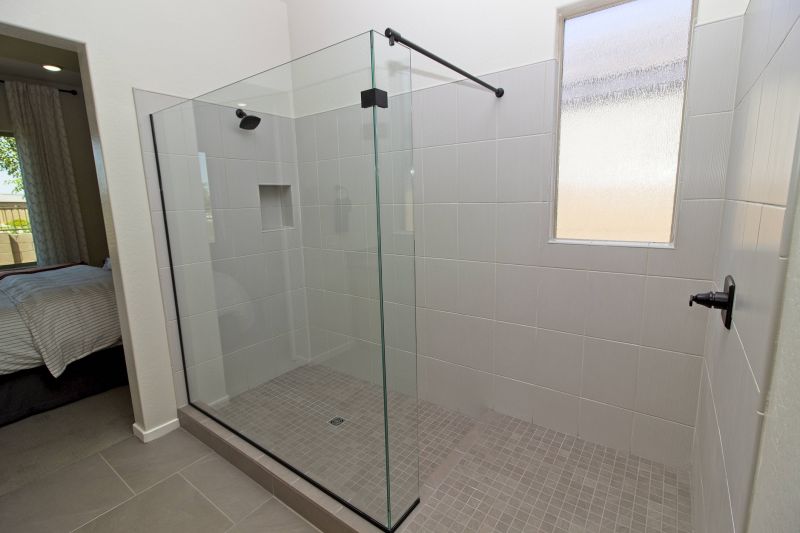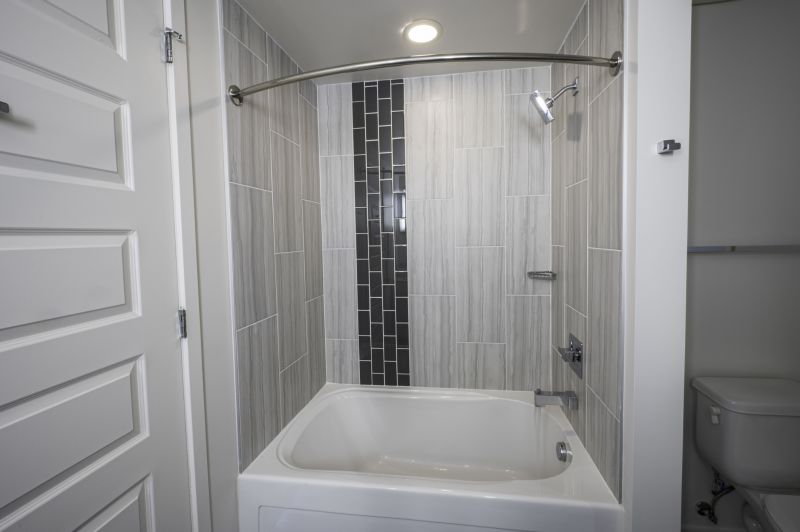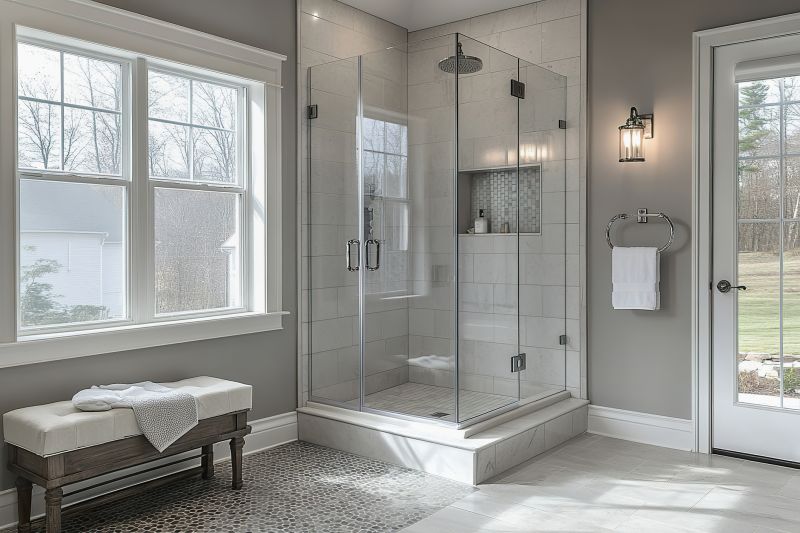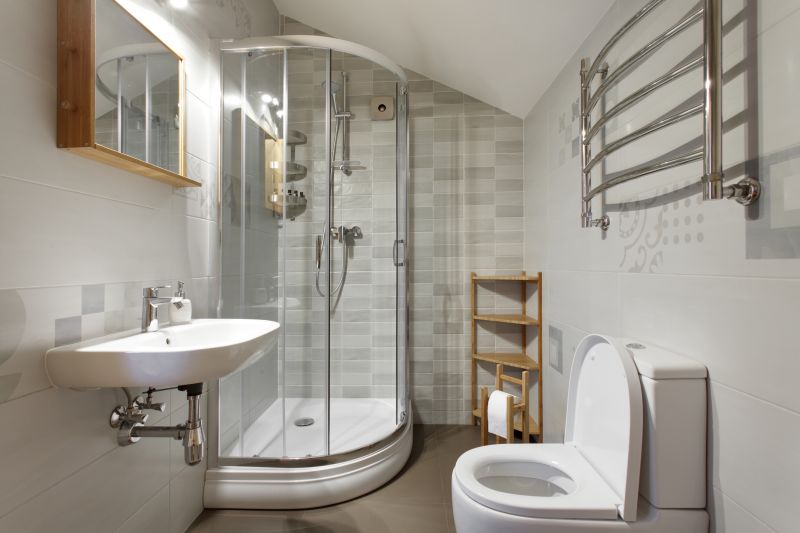Best Practices for Small Bathroom Shower Planning
Designing a small bathroom shower requires careful consideration of space utilization, style, and functionality. Efficient layouts can maximize the available area while maintaining comfort and aesthetic appeal. Common configurations include corner showers, walk-in designs, and shower-tub combos, each suited to different spatial constraints and user preferences. Proper planning ensures that even the most compact bathrooms feel open and inviting.
Corner showers are ideal for small bathrooms, utilizing two walls to create a compact and functional space. They often feature sliding or pivot doors to save room and can be customized with various tile patterns and glass options.
Walk-in showers offer an open feel, eliminating the need for doors or curtains. They can be designed with a single glass panel or a partial enclosure, providing accessibility and a modern look.

Efficient use of space with a corner shower featuring clear glass to enhance openness.

Combining a shower with a tub maximizes functionality in limited areas.

Simple, streamlined layouts with frameless glass for a sleek appearance.

Built-in niches and shelves optimize storage without cluttering the space.
| Layout Type | Advantages |
|---|---|
| Corner Shower | Maximizes corner space, ideal for small bathrooms. |
| Walk-In Shower | Creates an open, accessible environment. |
| Shower-Tub Combo | Provides bathing and showering options in limited space. |
| Neo-Angle Shower | Uses angled walls to fit into tight corners efficiently. |
| Glass Enclosure | Enhances visual space and modern aesthetic. |
| Open Shelving | Offers storage without encroaching on the shower area. |
| Sliding Doors | Save space compared to swinging doors. |
| Frameless Glass | Provides a clean, unobstructed view and feeling of openness. |
Choosing the right layout for a small bathroom shower depends on the available space, personal preferences, and desired aesthetics. Corner showers with sliding doors are popular for their space-saving design, while walk-in showers provide a seamless, accessible experience. Incorporating built-in niches, glass panels, and minimal hardware can further enhance the sense of openness and functionality. It is essential to balance style and practicality to create a shower space that feels larger than its actual dimensions.
Innovative design ideas include using light-colored tiles and large-format glass to reflect light and make the space appear bigger. Installing a clear glass enclosure instead of frosted or textured glass can also improve visibility and openness. Additionally, choosing fixtures and fittings that are proportional to the space prevents the area from feeling cramped. Proper layout planning ensures that every inch of the small bathroom is utilized effectively, resulting in a functional and visually appealing shower area.
Incorporating these design principles and layout options can transform a small bathroom into a highly functional and stylish space. Whether opting for a corner shower, a walk-in design, or a combination of features, thoughtful planning enhances usability and aesthetic appeal. Small bathroom shower layouts should focus on maximizing space, minimizing clutter, and creating a harmonious environment that suits individual needs and preferences.





